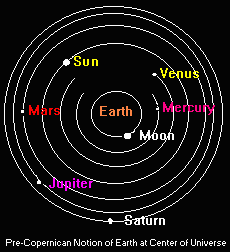We are advised by believers that when we first read the Qur'an it should be with an
open heart. What are we to understand by this?
I like to believe that I try to approach
any book ready to be moved, cajoled, persuaded, educated ... to have my prejudices questioned and challenged. But I'm not naive enough to believe that I can divorce myself totally from my background.
I may thus have approached the Qur'an with an open mind, but it was the mind of Western-Judeo-Christian-Atheist-Liberal-Democrat who is fortunate enough never to have been hungry or persecuted for his beliefs... But then God presumably knows this, since He made us ... if you believe that sort of thing.
Hence, with the best will in the world, I am not the
tabula rasa the Qur'an apparently requires
.
Nonetheless, we should do our best to read the Qur'an ready and willing to believe, shouldn't we?
Well actually, no. I don't think we should.
For if we are to treat the Qur'an with a genuinely open heart/mind - that's to say with no preconceptions - then we should read it as
any other book: with no less, but certainly
no more, reverence or willingness to believe its content. Why should we, after all?
"Because it's from God!" believers patiently explain.
But if I approach the Qur'an
uncritically, ready to believe it is from God, then my heart is hardly open. In fact, it is closed to all but one possibility. When you ask me to read your book with an open heart, you in essence are asking me to read it starting with the assumption that what I am reading are God's words...like you do.
Rather we should surely read ANY book that makes the stunning claim that it is from God with a healthy cynicism. Don't we owe that to ourselves...and to God should He or She actually exist? Otherwise we are surely vulnerable to the most appalling exploitation...
For we would have to extend the same
uncritical courtesy to any text claiming to be divine. Do we read
The Introduction to Scientology Ethics starting with the assumption that L Ron Hubbard might have had a point? I hope not. No, we read it starting from the premise that this is in all likelihood rubbish and if, by some miracle, it
is genuine, then the divine contents will surely persuade us...despite our initial reluctance. "But no-one seriously believes that stuff," you claim. Try telling that to Tom Cruise and the 50,000 other Scientologists (or the 8 million who have taken a course in it!)
So the Qur'an, just like
Scientology Ethics, needs to overcome the natural and healthy skepticism of the objective reader. I know that such a statement might be shocking to a Muslim - but your shock surely betrays how different are the points from which we approach our reading.
And I'm afraid my skepticism is hardly lessened when I read of some of the "signs" that God has apparently sent to persuade me that His book is for real: Camels...? Paths...? Sailing ships...? Mountains to stop the Earth shaking...? Invisible pillars to hold up the sky...? Talking ants...? Is my
open heart supposed to gloss over these bizarre references?
Where are the miraculous and awe-inspiring verses needed to persuade beyond doubt an open-hearted and healthily skeptical reader that these are God's words? Believe me, they'd have to be pretty good to make me forget the references to the sun setting in a muddy pool or crucifying those who spread sedition, to list but two of the many,
many disturbing images and injunctions in the Qur'an.
Surely anyone approaching the Qur'an with a
genuinely open heart - without the cultural/family/political background to colour their perception so fatally that they
start with the assumption that what they are reading are God's words - will see the book for what it is. A book - nothing more, nothing less.
For as Carl Sagan so memorably had it:
It pays to keep an open mind. But not so open your brains fall out.






